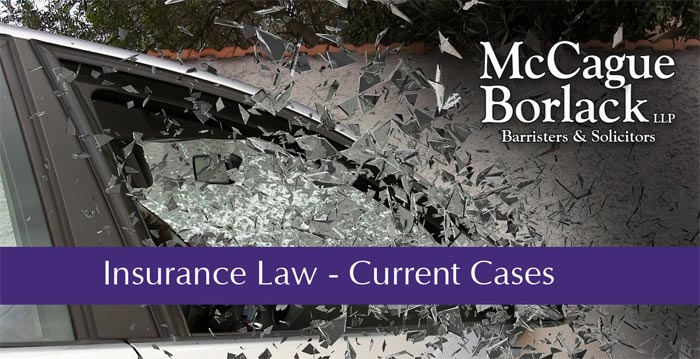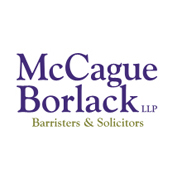The Court of Appeal for Ontario (“ONCA”) made this finding in Tomec v. Economical Mutual Insurance Company,1 which arose from a motor vehicle accident. In that case, the applicant, Tomec, sustained serious injuries when she was struck as a pedestrian by a vehicle. Initially, Tomec was not determined to be CAT. As such, she was entitled to receive housekeeping and attendant care benefits for a maximum of 104 weeks. When the 104 weeks passed, Economical Mutual Insurance Company (Tomec's insurer) notified Tomec on September 12, 2010, that she was no longer eligible to receive these benefits.
However, over the years that followed, Tomec's condition deteriorated to such an extent that, five years after the benefits ended, Economical accepted that Tomec had become CAT. Notwithstanding its acceptance of her CAT determination, Economical denied Tomec enhanced housekeeping and attendant care benefits. Economical's position in this regard was that the two-year limitation period to dispute benefits was triggered by its September 12, 2010 notice to Tomec, and had therefore expired.
Tomec applied to the Licence and Appeal Tribunal (the “LAT”) for a determination of the issue. The LAT agreed with Economical, finding that Tomec's claim for housekeeping and attendant care benefits was statute barred and, in turn, denied her application. Tomec subsequently applied for judicial review, but her application was dismissed by the Divisional Court.
Finally, Tomec appealed to ONCA, which granted leave. In considering the matter, ONCA disagreed with the LAT's decision to deny an applicant enhanced housekeeping and attendant care benefits. ONCA found that the LAT's decision to impose a hard limitation was unreasonable, and it allowed the appeal. In arriving at this conclusion, ONCA followed the decision made by the Supreme Court of Canada (the “SCC”) in Pioneer Corp v. Godfrey.2 In Pioneer, the SCC found that the limitation period could not begin to run without the denial of a benefit and that the doctrine of discoverability would apply where the limitation emanated from a cause of action. Applied to the facts in Tomec, ONCA found that the cause of action was the denial of a benefit, meaning that eligibility must precede denial of the benefit.
...the letter had not started the clock on the limitation period... |
Based on this reasoning, ONCA ultimately found that Tomec was not eligible for the enhanced benefits when Economical wrote the September 12, 2010 denial letter because she had not yet been determined to be CAT. As such, the letter had not started the clock on the limitation period, and Tomec's claim was not statute-barred.
An application for leave to appeal to the SCC was denied.*
The decision in Tomec has been considered by lower courts and tribunals. The consideration of Tomec by the LAT has resulted in additional important development. Specifically, Tomec does not apply to post-104 week Income Replacement Benefits ("IRB"). In other words, the commencement of the limitation period for post-104 week IRB is not delayed to the time an insured qualifies (i.e. no earlier than 104 weeks post-accident). This finding arose from the LAT's recent consideration of Tomec in R.S. v. Pafco Insurance Company.3 In Pafco, the applicant sought relief under s.7 of the LAT Act and argued that the claim for post-104 week IRB had not expired. The applicant attempted to rely on the decision in Tomec to claim that his cause of action for entitlement to IRB beyond 104 weeks of disability did not accrue until at least 104 weeks following the accident. However, the LAT distinguished Tomec, stating that Tomec dealt with attendant care and housekeeping in CAT matters, and did not address IRB.
Instead, the LAT applied two other ONCA cases in its analysis. In the first case the LAT applied Bonilla v. Preszler,4 ONCA refused to apply the doctrine of discoverability to the IRB context, and found that such a loss crystallizes when the insured receives notice of termination from the insurer. The LAT stated that the court in Tomec made no indication that it intended to overturn Bonilla. The LAT also applied the principle from Bonaccorso v. Optimum Ins. Co.,5 that IRB are part of a single claim. The LAT stated that the court in Tomec did not address whether IRB constitute separate claims, and therefore did not intend to overturn Bonaccorso either.Therefore, the LAT concluded that the principles from Bonilla and Bonaccorso continue to apply, which means the insured's receipts of the notice of termination commences the limitation period for IRB. Based on this analysis, the LAT in Pafco denied the application.
Based upon the Tomec and Pafco decisions, the state of the law is now as follows: the limitation period for benefits only available to catastrophically impaired individuals (i.e. post-104 week attendant care, housekeeping and case manager expenses) is only triggered when a claimant is determined to be catastrophically impaired, not when those benefits were initially denied. However, the limitation period for IRB remains triggered by the denial, regardless of the fact that the test for IRB changes at the 104-week mark.
- 2019 ONCA 882.
- 2019 SCC 42.
- 2020 ONLAT 19-006311/AABS.
- 2016 ONCA 769.
- 2016 ONCA 34.


